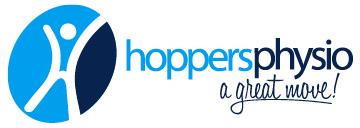What is Causing my Dizziness?
Dizziness
Dizziness can stem from a variety of things including your neck, jaw, heart or even your vestibular system (inner ear) among others. It is often very debilitating as it reduces individuals participation in activities, increase their fear and anxiety as well as increase their risk of falls. Below, we have described 2 types of dizziness that our clinic sees on a weekly basis.
Vertigo
Vertigo is one of the main conditions people are often diagnosed with where people can describe dizziness or a spinning sensation. This issue may arise when the vestibular system isn’t functioning properly. This includes parts of the inner ear and brain which controls balance and eye movement. It can be brought on by changing positions, rolling in bed or moving you head quickly.
Symptoms of vertigo often include:
- Spinning or swaying sensations
- Nausea or vomiting
- Loss of balance
- Difficulty walking
- Sensitivity to movement or light
These symptoms can be quite unsettling and interfere with individuals daily life. Proper diagnosis and treatment are essential, which is where a trained physiotherapist can help.
Cervicogenic Dizziness
Unlike vestibular disorders like vertigo, cervicogenic dizziness results from issues in the neck, such as poor posture, whiplash, or chronic pain. Individuals with this condition often report feelings of unsteadiness or disorientation rather than experiencing nausea or spinning sensations which align more with vertigo.
Key symptoms of Cervicogenic dizziness include:
- Neck pain or stiffness
- Reduced range of neck movement
- Headaches that accompany dizziness
- Sensations of unsteadiness or imbalance
It is important to rule out all other potential types of dizziness first before ruling in a cause from the neck. A physiotherapist can help with this type of conditions by addressing neck dysfunction through manual therapy, soft tissue release, and strengthening exercises.
How will Physio help?
Regardless of whether it is cervicogenic, vestibular, or TMJ (jaw), our physiotherapists at Hoppers Physio can help. Treatment may involve neck-focused techniques like soft tissue work or mobilisations. Vestibular issues may require canalith repositioning manoeuvres or vestibular rehabilitation exercises. TMJ problems may need hands-on treatment and targeted exercises, tailored to your specific condition. If you are experiencing feelings of dizziness, our team is here to help you. Reach out today to get your health on track!

